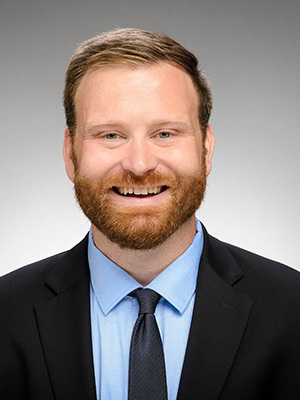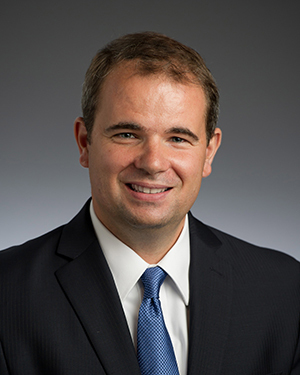Many consumers make unhealthy choices, but ‘uptrend messaging’ can help drive healthy behavior
Good nutrition and regular exercise can help prevent disease, but substantial evidence shows that only a minority of consumers adequately engage in these and other recommended healthy behaviors. In fact, according to the Centers for Disease Control, only 10 percent of Americans eat enough vegetables, 13 percent get enough fruit and 24 percent exercise adequately.
As a result, many healthy behaviors are what experts would consider “descriptively non-normative,” meaning most people don’t follow the recommendations by engaging in them.

In an effort to help marketers design messages to encourage healthy choices, new research from the University of Notre Dame introduces “uptrend messaging.” Rather than focusing on the fact that most consumers don’t follow the recommendations, it instead emphasizes the positive — that the percentage engaging in healthy behaviors is increasing.
“The Uptrend Effect: Encouraging Healthy Behaviors Through Greater Inferred Normativity” is forthcoming in the Journal of Marketing Research from John Costello and Frank Germann, marketing professors in Notre Dame’s Mendoza College of Business, along with Aaron Garvey from the University of Kentucky and James Wilkie, a senior data scientist at Fetch Rewards Inc.
The study states, “A key challenge to developing effective messages that encourage proper diet or exercise is rooted in the unpopularity of these behaviors. And when only a minority of people engage in a health-protective behavior, social marketers cannot truthfully use traditional descriptive normative messaging strategies highlighting that the majority of people engage in that behavior.”
Past research has shown that directly pointing out the unpopularity of a behavior tends to discourage engagement.
“By highlighting the positive, uptrend messaging allows consumers to infer the popularity of that behavior on their own, leading them to believe it is more popular than they otherwise would,” Costello said. “This shift in perceptions leads to greater engagement in the behavior.”

Across seven experimental studies, the team aimed to address the “unhealthy behavior is in the majority” quandary and discovered that uptrend messaging leads people to choose vegetables over crackers for a snack or to take a free apple when offered.
They also test the uptrend effect against existing social norm messaging approaches available to managers and policymakers.
“In both a controlled experiment and a field study conducted using Facebook advertising, we find that uptrend messaging outperforms other norm-based approaches,” Costello said. “Taken together, uptrend messaging offers a novel way to shift perceptions of descriptively non-normative behaviors and a practical tool social marketers and policymakers can use to address important societal issues.”
The team observed consumption behavior on a Notre Dame Football Friday and conducted controlled experiments both online and in behavioral labs at Notre Dame and the University of Kentucky. Across all studies, they found uptrend messaging drives healthy behavior and outperforms the other messaging approaches they tested.
The study shows that social marketers can positively influence healthy behaviors without deceiving consumers or providing inaccurate information.
“Our work provides policymakers and social marketers with an actionable and easy-to-implement messaging strategy that highlights truthful, but unexpected trend information around healthy behaviors,” Costello said. “We find that uptrend messaging can be used to encourage healthy behaviors that improve consumer quality of life.”
Contact: John Costello, 574-631-5171, jcostel4@nd.edu; Frank Germann, 574-631-4858, fgermann@nd.edu
Latest University News
- Notre Dame celebrates new pope; Father Dowd offers prayersRev. Robert A. Dowd, C.S.C., president of the University of Notre Dame, offered his prayers for Pope Leo XIV, elected by the College of Cardinals today in Vatican City as the 267th pontiff of the Catholic Church.
- Clare Cullinan named valedictorian, Bennett Schmitt selected as salutatorian for the Class of 2025Clare Cullinan of South Bend, Indiana, has been named valedictorian and Bennett Schmitt from Jasper, Indiana, has been selected as salutatorian of the 2025 University of Notre Dame graduating class. The 180th University Commencement Ceremony will be held May 18 (Sunday) in Notre Dame Stadium for graduates and guests. During the ceremony, Cullinan will present the valedictory address, and as salutatorian, Schmitt will offer the invocation.
- Notre Dame’s Fightin’ Irish Battalion receives Department of Defense award as nation’s top Army ROTC programThe United States Department of Defense honored the University of Notre Dame’s Army ROTC Fightin’ Irish Battalion as the nation’s top Army collegiate program for the 2023-24 academic year. This will be the first time the unit has received the department’s Educational Institution Partnership Excellence Award, which recognizes the program’s achievements in recruiting, educating, training and commissioning leaders of character to be the next generation of military officers.
- Senior James Reintjes named 2025 Yenching ScholarUniversity of Notre Dame senior James Reintjes has been named a 2025 Yenching Scholar. He is one of 114 Yenching Scholars overall, representing 40 countries and regions around the globe. He is Notre Dame’s 12th Yenching Scholar and its 9th since 2018.
- Junior Cade Czarnecki named 2025 Phi Beta Kappa Key into Public Service ScholarUniversity of Notre Dame junior Cade Czarnecki is among 20 recipients of a 2025 Key Into Public Service Scholarship from Phi Beta Kappa. He is Notre Dame’s fifth Key Into Public Service Scholar since the program was established in 2020.
- Alumnus Charles Yockey named 2025 Schwarzman ScholarUniversity of Notre Dame alumnus Charles Yockey has been named a 2025 Schwarzman Scholar. He is the University’s second Schwarzman Scholar since the program was established in 2015. He is one of 150 students selected for the award from a pool of nearly 5,000 applicants. Schwarzman Scholars…













